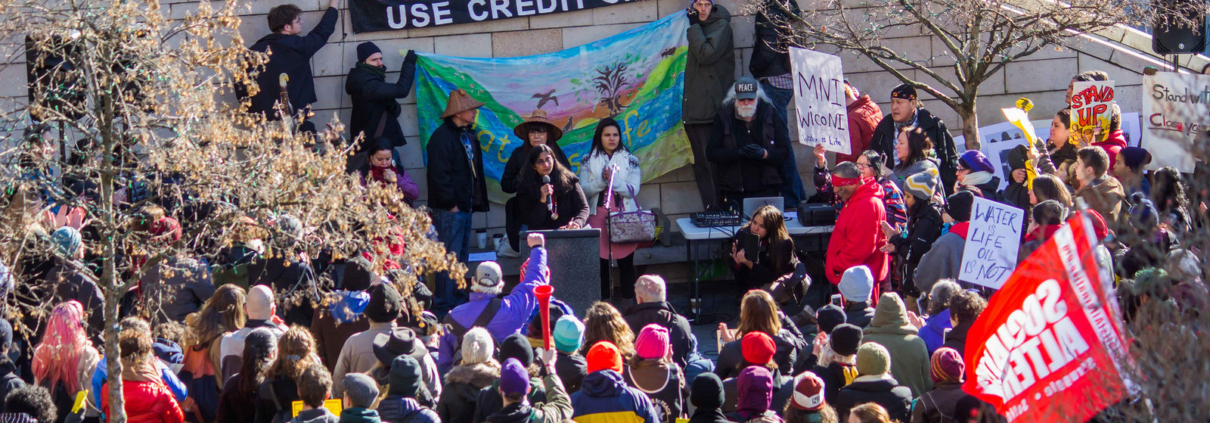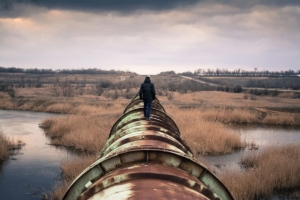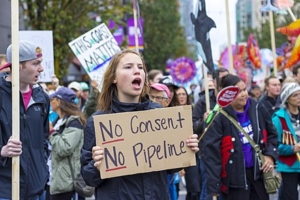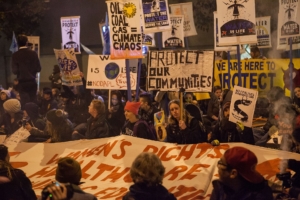The Changing Nature of Energy Activism Means Pipelines Can’t Wait for Crisis To Hit
The Changing Nature of Energy Activism Means Pipelines Can’t Wait for Crisis To Hit
The Overview: Newsbase’s North American Oil & Gas reports, “Last week marked the first anniversary of the closure of the camps in North Dakota that at one point had held thousands of protesters against the Dakota Access pipeline project. Still, the influence of that event looms large, and stands to shape how future demonstrations against energy projects might be carried out.”
Why It Matters: In speaking with Newsbase for the article, Delve Founder & CEO Jeff Berkowitz discussed the changing nature of opposition to energy infrastructure projects, viewing the Dakota Access pipeline protests beginning in Fall 2016 “as a demarcation into a new age of activism.” Indeed, this new age was a prominent feature at this year’s CERAWeek conference, where pipeline CEOs vowed to fight back against today’s more intense, coordinated, and sophisticated environmental activism.
Subscribe to Receive Insights
"*" indicates required fields
As Newsbase’s Sam Wright warned, “[P]revention is certainly easier than finding a cure. But for those operators that are further down the line, along with their backers, highly visible demonstrations are here to stay, especially in the current political climate.”
How We Got Here:
- “Prior to [DAPL], protests against infrastructure and drilling activity had largely involved communities raising concerns over issues such as land value and local environmental impact … This changed with the Keystone XL project” when activist pressure “entered the political sphere, and the project was rejected by former US President Barack Obama in 2015.”
- “Buoyed by this success and seeking new causes, the movement shifted its focus to the US$3.78 billion Dakota Access project … ‘All of a sudden, you had 10,000 activists, in camps, 90% of which weren’t from North Dakota, and didn’t have a stake in the local issues but were using it to make a broader point,’ Delve’s founder and CEO, Jeff Berkowitz.”
What Comes Next:
- “[E]ven though protesters failed to stop Dakota Access from being completed, the momentum behind opposition to new projects remains strong. A “Week of Action” is currently under way at the site of Energy Transfer’s Bayou Bridge pipeline in Louisiana. … Meanwhile, Enbridge’s Line 3 pipeline replacement project in northern Minnesota … has already seen several arrests” of “protesters that oppose the project chaining themselves to equipment and blocking streets. Similar tactics have also been used at the Atlantic Sunrise gas pipeline in Pennsylvania … And the Trans Mountain expansion project in Canada has seen numerous demonstrations …”
Was DAPL An Exception? Maybe Not:
- “In the US, the ongoing wave of protests is perhaps also being spurred by the change in government. Under Obama, the federal government was relatively sympathetic to environmental issues and activists … With Trump’s ambitions to build infrastructure and promote ‘energy dominance’ – as well as his more combative nature – some of the traditional avenues for opponents to have their voices heard on energy projects have been shut down.”
- “Unsurprisingly, many protesters think that this gives them little option other than to take to the streets. This was acknowledged recently by Lancaster Against Pipelines’ co-founder, Mark Clatterbuck, whose group opposes the Atlantic Sunrise development,” who claimed they “had ‘tried every means available to us, and what we’ve come to realise is that the local communities actually don’t have the ability to legally stop a project like this’.”
- “[T]his has prompted a willingness to try new methods. Many groups now routinely publish lists of financial institutions that back the energy projects they oppose. For example, the website of the No Bayou Bridge Solidarity Campaign has listed Morgan Stanley, Bank of America, Citibank and Wells Fargo offices on its ‘targets map’ …”
What Can Firms Do To Protect Themselves?
- “In turn, said Berkowitz, this means that operators are coming under greater pressure to have firm plans in place to deal with activism from the very beginning. ‘Firms are going to have to add this element of due diligence, and if they don’t want to, the banks and the project financiers are going to force them to … We are hearing this a lot from the project finance side, where people are saying that political and reputational risk has to be a key part of the due diligence process.’”
- This due diligence process, Berkowitz explained, “means understanding who is likely to get engaged, who are the local officials, the landowners and so on … If you do your community outreach … the less sympathetic these stakeholders are to activists because they already know you… You have to do it right, though. It can’t just be a town hall meeting where you show up and answer some questions. It has to be real and meaningful engagement with the community.”



